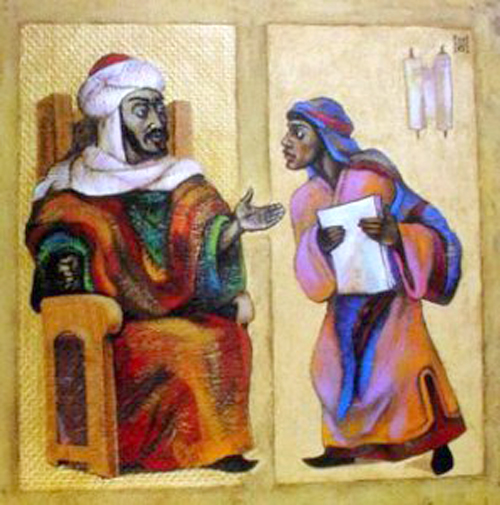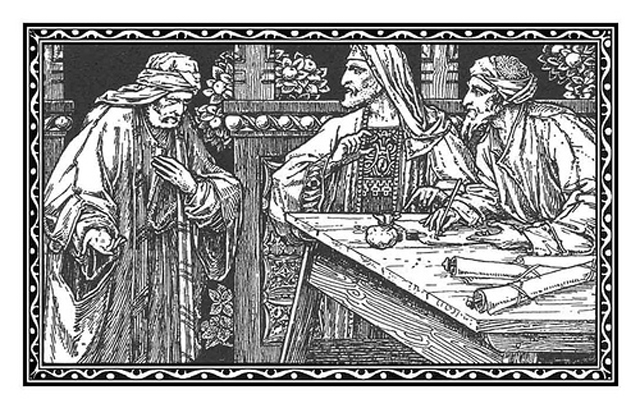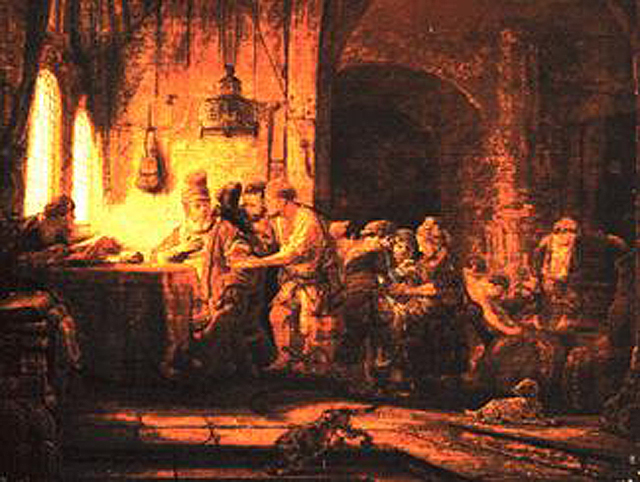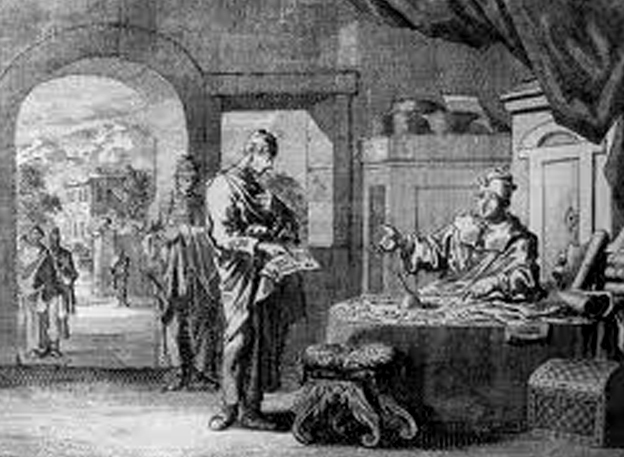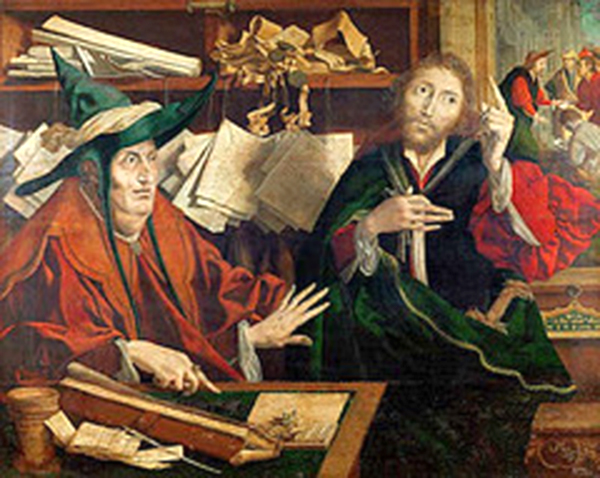 The Parable of the Rich Man and Lazarus
The Parable of the Rich Man and Lazarus
This parable is one of the most memorable to me from my childhood. I had an old Sunday School paper given to me by an elderly church member that showed poor Lazarus with the dog under the table. The image spoke to me and I thought a lot about this story with its other rich images—the rich man enduring the agony of Hades and the poor man seated comfortably with honor in heaven.
The definition of a parable, taught to us as children, is “an earthly story with a heavenly meaning.”
The parable of the Rich Man and Lazarus is a story about how we value wealth. When weighed against the danger of losing our place in God’s kingdom, how important are our possessions?
That’s a big subject. How do we cover such vast territory with an object lesson?
Let’s consider one of the most valuable things in the world—something we are accustomed to having provided to us for free.
Drinking water.
Our object is the $2 bottle of (name your favorite brand) water.
Bottling individual portions of water for sale changed the way we view and value everyday drinking water.
Water was once provided for free in restaurants. You didn’t have to ask. Water was placed before you. Now you not only have to ask, you ask at the risk of the upsell. “Would you like seltzer water or (name the brand)?” You can sense the disappointment when you say—tap water will be fine.
I once stayed in a hotel where they had in the room’s minibar $6 bottles of water imported from Scandinavia. H2O is H2O, still one of my companions just had to sample it.
Since water is now sold in easy to carry containers, you see them everywhere. Whoever cleans your sanctuary is liking to collect a few bottles from the pews—unheard of 20 years ago.
Professional performers who might have hidden a cup of water to wet their whistle between numbers, position a bottle of water in plain sight. Product placement!
Teachers report that students feel they must have water with them in the classroom. “Stay hydrated” is a popular mantra. “Very important” usually follows the advice.
The offer of water was once an expectation of hospitality. When I was a child, hiking in the country, it was not unusual to be offered water as we passed a farmhouse.
Water fountains were once frequent appointments in public buildings. It was so important to all human beings that even if we didn’t want to share, we provided separate fountains for the people we were looking down upon — the Lazaruses of our day. “Whites only” or “Colored” signs were attached.
We have a new set of nuisances or problems all because of bottled water (including disposing of the used bottles). Because it now has a measurable value to us, we now think about water very differently. The common tin cup hanging by the well is no longer good enough for anyone.
Owning our bottles of water makes us part of our culture. We feel rich and accepted when we are always armed with H2O. As common as water is, we have made it a commercial status symbol.
That immediately affects the way we share. We are tempted to keep our purchased bottles for ourselves. Let everyone buy their own bottles of water.
And yet, water is something none of us can live without.
How important is it for us to have water? How important is it for us to reach heaven?
The rich man is begging for the opportunity to leave Hades for just one day to warn his brothers to share their water.
An earthly story with a heavenly meaning.

